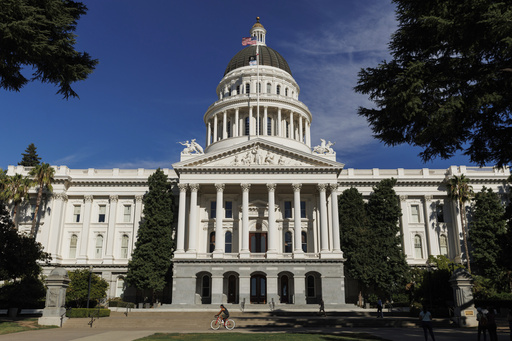In recent efforts to combat the high costs of living, California lawmakers have moved forward with significant proposals aimed at reducing utility profits and lowering electricity bills. This legislative push proposes substantial transformations in how utilities finance expensive infrastructure projects, notably the underground placement of power lines as a preventive measure against wildfires. The proposals include enhanced oversight of funds allocated for wildfire mitigation and impose new conditions on utility companies when requesting rate hikes. Advocates assert that investor-owned utilities should share the financial responsibility for wildfire prevention and the construction of new transmission networks.
“This isn’t merely an insignificant alteration that slightly tweaks the existing issues without causing disruptions,” stated Democratic State Sen. Josh Becker, the author of one of these bills. “This is monumental.”
The legislation is part of the broader agenda of the state Senate to address affordability issues, spurred on by concerns about escalating costs in various sectors, including essentials like fuel and food. Democratic Governor Gavin Newsom previously issued an executive order to push lawmakers to manage rising electricity rates. These rates have surged by 47% on average for residential consumers from 2019 to 2023, as reported by the Legislative Analysts Office.
However, Republicans, who currently hold a minority in both legislative chambers, argue that the proposed measures fail to address the root of rising costs effectively. They oppose the reform bills and attempted, though unsuccessfully, to initiate a vote to cap utilities from exceeding inflation rates with their power rate increases.
In recent times, rate hikes for utility services have gained approval from state regulators, primarily to allow investor-owned utilities to undertake projects such as burying power lines and managing vegetation. These initiatives aim to curb wildfire risks, as several of the most devastating and fatal fires recently were linked to power line equipment malfunctions. Notably, Pacific Gas & Electric, responsible for triggering a disastrous wildfire in 2018 that claimed 85 lives, raised its rates six times to fund projects like power line burials and other improvements.
Despite widespread financial hardships with roughly one in five customers unable to pay their electricity bills, utility companies, including PG&E, reported record profits last year, noted The Utility Reform Network, an organization advocating for ratepayer protections. They endorse Becker’s bill and have promoted a parallel initiative in the Assembly. According to PG&E’s spokesperson Mike Gazda, electricity bills were approximately 3% lower in April compared to the previous year, with expectations for further reductions as certain fees phase out.
“There’s essentially no ceiling on how much the utilities can request for rate hikes, nor any restrictions on the frequency of such requests,” said Mark Toney, executive director of the advocacy group. “They’re just maximizing their asks.”
Becker’s proposal demands that utilities utilize public funding for the initial $15 billion spent on capital projects, thereby gaining access to lower interest rates. Crucially, utilities would not be allowed to collect returns on investments for their shareholders, translating to $8.8 billion in savings for customers over the next decade, as outlined by Becker. Additionally, the bill would establish a state-sponsored fund to reimburse utilities for wildfire-related projects, but the current state budget may not accommodate such financial commitments this year.
Furthermore, the proposal introduces increased scrutiny of utility budgets and their wildfire-related expenditures. Utility companies would be mandated to propose at least one rate increase that aligns with inflation rates. A provision for $60 billion in credits to be spread across summer months—when energy usage spikes—is also included.
Despite substantial backing from Senate Democrats, Becker’s measure faces criticism from Republicans, utilities, and the California Chamber of Commerce, who argue it would inflate costs. As expressed in a dissenting letter, the chamber argued that the bill merely redistributes current costs without eliminating them. They also cautioned that the revamped regulations on rate increases and shareholder returns might dissuade utilities from investing in wildfire prevention or infrastructure enhancement.
Republican State Senators attribute soaring energy bills to policies pushed by Democrats, who advocate for increased adoption of electric vehicles and reduced dependency on fossil fuels. In the Assembly, some Republicans continue to campaign for streamlined permitting processes to expedite and economize the building of improved utility infrastructure.
“The regulatory environment in our state is burdensome and certainly a factor in driving up prices,” commented Sen. Roger Niello, a Republican. “Your affordability package is modest in size, but even more so in its potential impact.”
Lawmakers are also pushing forward various measures to alleviate strain on ratepayers. Among these is a stipulation preventing utilities from using billing revenues for lobbying activities, alongside a plan enabling California to become part of a regional energy market with other Western states to bolster grid reliability.



